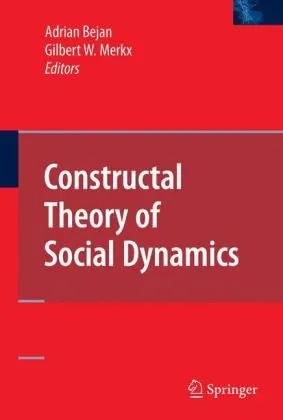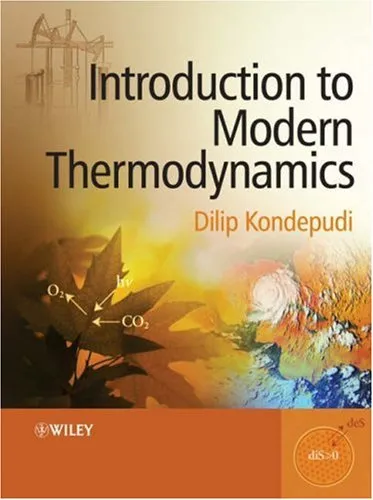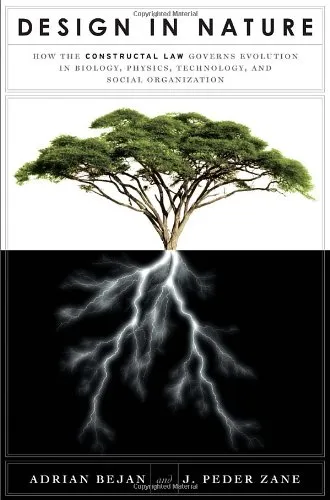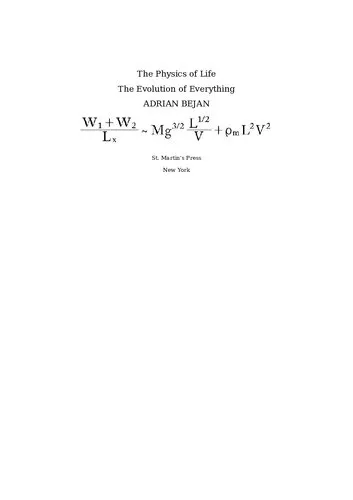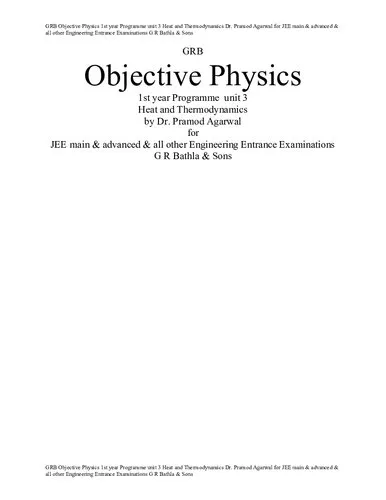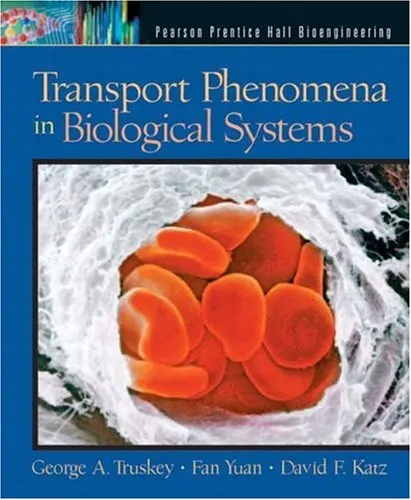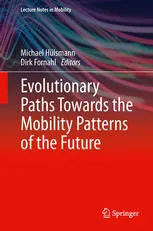Constructal Theory of Social Dynamics
4.0
Reviews from our users

You Can Ask your questions from this book's AI after Login
Each download or ask from book AI costs 2 points. To earn more free points, please visit the Points Guide Page and complete some valuable actions.کتاب های مرتبط:
Introduction to "Constructal Theory of Social Dynamics"
The groundbreaking book "Constructal Theory of Social Dynamics," authored by Adrian Bejan and Gilbert W. Merkx, offers a revolutionary perspective that bridges the gap between the physical sciences and the social sciences. Employing the principles of constructal theory, the authors present a compelling case for how the flow of social, economic, and cultural systems mirrors the patterns found in natural systems such as rivers, trees, and human vascular systems. The work pushes the boundaries of interdisciplinary research, making it a vital resource for those studying social dynamics, organizational psychology, economics, and even engineering.
Constructal theory, originally proposed by Adrian Bejan, posits that systems evolve to facilitate easier flow paths for energy, matter, or information. By applying this principle to social dynamics, the authors explain how societies develop, sustain themselves, and adapt over time. The book explores diverse phenomena such as migration, urban growth, technological innovation, and even linguistic evolution. Through the lens of constructal theory, Adrian Bejan and Gilbert W. Merkx provide fresh insights into these age-old topics, making this book not only thought-provoking but transformative for anyone seeking a deeper understanding of human behavior and societal progress.
Detailed Summary of the Book
The premise of "Constructal Theory of Social Dynamics" revolves around one central idea: flow systems in nature and society inherently evolve to reduce resistance and optimize functionality. The book begins with an accessible overview of constructal theory, introducing readers to its foundations in thermodynamics and systems theory. Unlike traditional interpretations of social science phenomena that are often rooted in behavioral paradigms, Bejan and Merkx provide a refreshing take grounded in physical science principles.
The authors go on to explain how this theory applies to numerous social and economic systems. For example, in chapters dedicated to urban planning and city design, they demonstrate how cities evolve to optimize the flow of people, goods, and resources. Another section delves into innovation and technology, illustrating the mechanics behind the adoption and diffusion of ideas. The application of constructal theory to topics like migration patterns and linguistic shifts further underscores the universality of the framework proposed in the book.
One of the standout features of the book is its use of empirical evidence and graphical illustrations to support key arguments. Through case studies and real-world examples, Bejan and Merkx make the theoretical concepts highly relatable and digestible. The work concludes with thought-provoking discussions about how constructal theory can influence policymaking, sustainability practices, and the way we conceptualize societal evolution in the future.
Key Takeaways
- Constructal theory is a universal framework that explains the evolution of flow systems in both nature and society.
- Social systems, like rivers and tree branches, evolve in ways that aim to reduce resistance and enhance functionality.
- The theory applies across diverse domains, including migration, urban growth, innovation, and even language development.
- Constructal theory has practical implications for improving cities, designing sustainable systems, and understanding human behavior.
- This interdisciplinary approach has the potential to challenge long-held beliefs in social science and reshape how we approach societal challenges.
Famous Quotes from the Book
"Understanding social and cultural dynamics through the lens of constructal theory empowers us to see patterns and predict outcomes far better than mere observations ever could."
"Flow is the essence of life. Whether it is a river carving through land or a society evolving over time, all systems strive toward greater efficiency in movement and connectivity."
Why This Book Matters
"Constructal Theory of Social Dynamics" is not merely an academic treatise—it is a roadmap for understanding the fundamental nature of change and adaptation in human societies. It provides a scientific explanation for phenomena that social scientists have studied for centuries, offering a level of rigor and predictability previously absent from the discourse.
In a rapidly transforming world, where urbanization is exploding, migration is at an all-time high, and innovation is reshaping our societies, this book offers clarity and foresight. It equips policymakers, urban planners, engineers, and scholars with the tools to make informed decisions that align with the natural flow tendencies of systems. Moreover, its interdisciplinary framework bridges the divide between physical and social sciences, fostering a holistic understanding of human progress.
For students and professionals alike, this book is an invitation to step beyond traditional theories and embrace a new paradigm. It demonstrates the power of applying physical principles to social sciences, opening new avenues for research and practical application. By doing so, "Constructal Theory of Social Dynamics" leaves an indelible mark on the literature of science, society, and beyond.
Free Direct Download
You Can Download this book after Login
Accessing books through legal platforms and public libraries not only supports the rights of authors and publishers but also contributes to the sustainability of reading culture. Before downloading, please take a moment to consider these options.
Find this book on other platforms:
WorldCat helps you find books in libraries worldwide.
See ratings, reviews, and discussions on Goodreads.
Find and buy rare or used books on AbeBooks.
1425
بازدید4.0
امتیاز0
نظر98%
رضایتReviews:
4.0
Based on 0 users review
Questions & Answers
Ask questions about this book or help others by answering
No questions yet. Be the first to ask!
